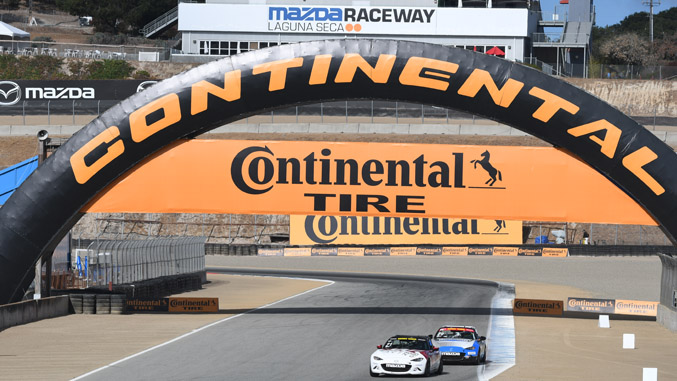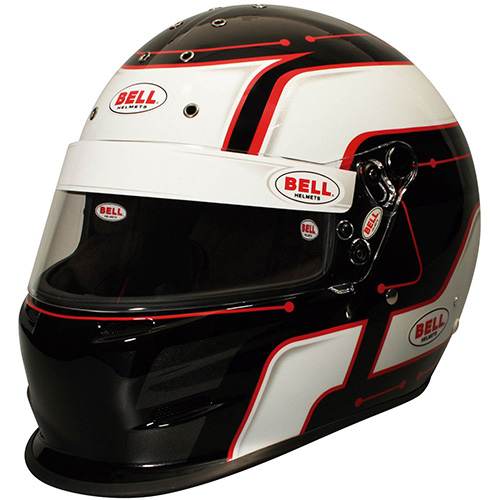Speed Secrets: Managing Expectations

I’m here to talk to you today about something very, very dangerous. No, I’m not talking about racing in general, or even crashing specifically. I’m talking about something much worse than that. I’m talking about expectations.
You see, expectations can be a dangerous thing. Possibilities and potentialities, however, can be marvelous things.
Expectations do not have any direction. It’s as if I said, “I expect to be in New York City.” That certainly doesn’t get me to New York City, does it? No, there is no plan, strategy or direction. If I say, “My goal is to get to New York City,” it naturally leads me to developing a plan to get there.
If you expect a particular result, and it does not occur, you become frustrated or disappointed. Neither feeling helps get you any closer to the result you were looking for. If you focus on your goals, such as performing at your very best, you then have a direction to follow, one that will more likely lead to the result you were looking for.
Expectations can also be limitations. Going into qualifying, for example, you think that if you turn a 50.5, that will put you on the front row. You head onto the track and do a 50.8, a 50.6, and then a 50.5. What are the odds of you going much quicker? Not good. After all, you matched your expectations. Consciously, you may not be satisfied with the time, but if you put a time into your subconscious, your mind will do what it takes to match it – and not go beyond it. But, what if the track conditions changed – for the better? Some tracks change significantly throughout a race weekend, becoming faster with each session. So, perhaps a 50.5 would have put you on the front row based on a previous session, but only put you on the fourth or fifth row in qualifying.
Karl Wendlinger, who was severely hurt (he was in a coma for two weeks) driving for the Sauber F1 team at the 1994 Monaco Grand Prix, provides a perfect example of this in Christopher Hilton’s book, Inside The Mind Of The Grand Prix Driver. In this case, he is referring to when he went back to testing for the Sauber team in 1995, having been away from the cockpit for almost a year. “Because I’d only done a little driving I had time to prepare my body, to do training. I did a lot of concentration exercises. Then I arrived at Mugello. It was a two and a half day test and, the evening before, I thought ‘OK, one minute 30.4 would be a good time.’ I concentrated, I closed my eyes and as I crossed the line into the lap I started my stopwatch. I did a whole lap in my brain and looked. The stopwatch said 1:30.4. The next day on the track I did 1:30.4.
“Then I said to myself, ‘it was too easy, tomorrow you have to do 1:29.3.’ The best lap that Heinz-Harald (Frentzen, Wendlinger’s team-mate) did in Mugello all year was 1:29.0 and because I had done so little driving I thought 1:29.3 was competitive. I sat in the hotel again, closed my eyes and started the watch. I ‘drove’ the lap and looked. 1:29.3. Next day I did 1:29.3. You know the best thing was – and this fascinates me about what you can do with your brain – I only did the 1:29.3 because I made a mistake and lost three-tenths. If I hadn’t made that mistake I would have done 1:29.0 – but the evening before I had fixed in my brain 1:29.3 and not zero, and that’s what happened. If I had fixed 1:29.0 maybe I wouldn’t have made the mistake and I’d done the time easily.”
Like I said, expectations are limitations, and you rarely exceed your expectations. Wendlinger proved that, along with the power of mental imagery. Expectations program results into your mind, and your mind is very efficient at running those programs – sometimes too efficient! In Wendlinger’s case, it sounds as if had he expected to turn a 1:29.0, he would not have made the error that ultimately cost him three-tenths of a second. That’s the (negative) power of expectations at work.
Speed Secret: Delete your expectations. Focus on your possibilities.
Now, ask yourself these questions:
- Is it possible for you to take your driving performance to an all-new, higher level than ever before?
- Is there any physical or mental reason why you can’t perform at a level that would mean that you would totally dominate your competition this year? Sure, I understand that your car plays a role in this, but understand I’m not talking about results. I’m talking about performing (driving) in such a way that if you have equal equipment, then you would dominate races. Is that possible?
- To make these possibilities easier to buy into, do you suppose using some of the strategies I’ve suggested in this column could improve your performance over time? Could learning more about driving improve your performance?
Truly great athletes in any sport have an ability to keep what’s often referred to as a “beginners mind.” This means having an open mind to whatever comes along, and simply responding to that. It means believing practically anything is possible. It means not having expectations. It means not even thinking about results, but only on how one is performing at that particular moment.
Remember, everything is possible, as long as you haven’t limited yourself by setting expectations.
Ross Bentley
For more information about Ross’s tips, coaching, eCourses, newsletter, Virtual Track Walk videos, and other resources to help you drive at your best, go to www.SpeedSecrets.com


















